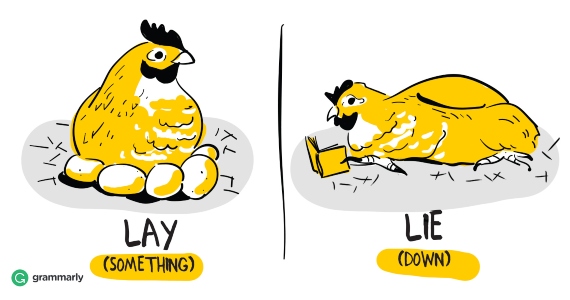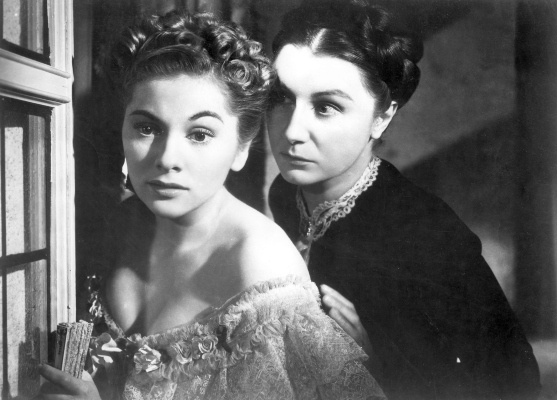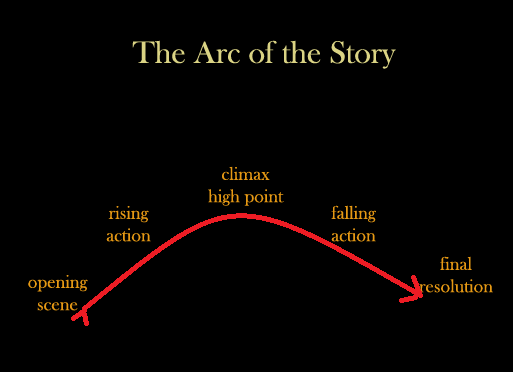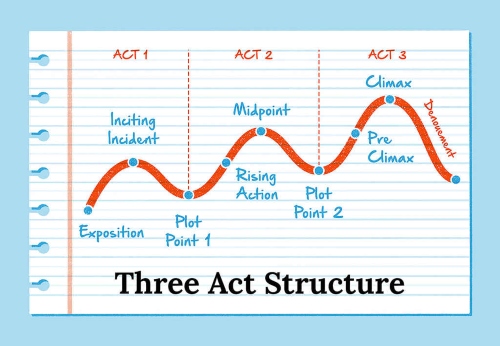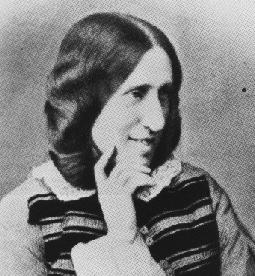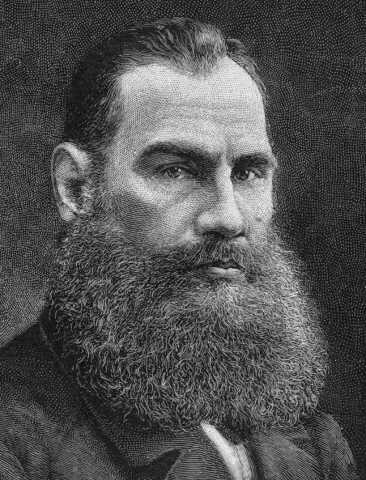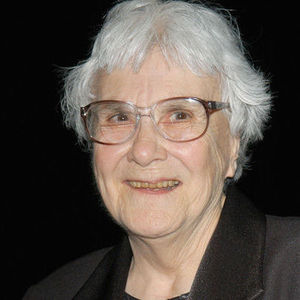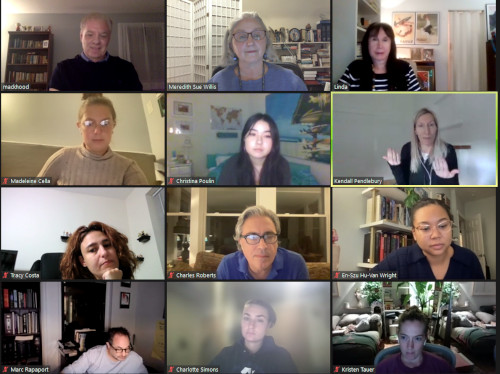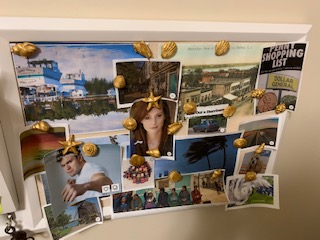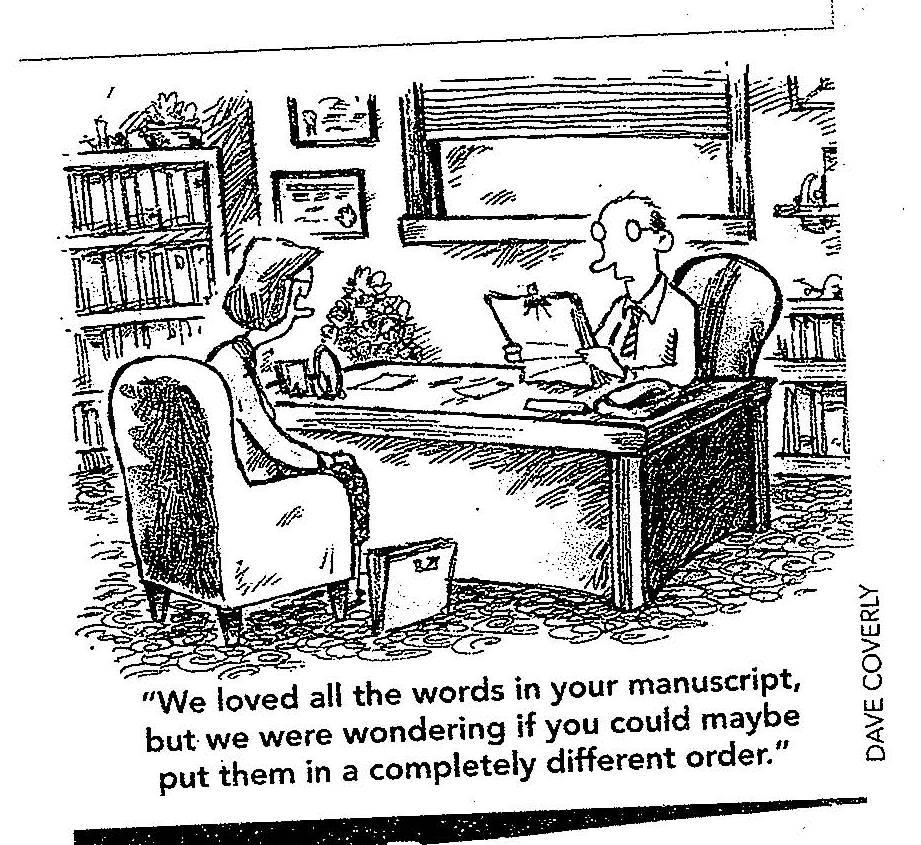Fall 2021
Novel Writing -- WRIT1-CE9355
Meredith Sue Willis Home Syllabus
Various NYU policies Individual Critique Sessions
Check this site frequently for changes in readings
and for optional informationupdated 12-1-21
Thank you for your hard work and cheerful companionship in writng!
This page will remain openuntil January 1, 2022
if you need access to any of the materials.
Current Week Session
NOTE: Each week's session can be viewed in final form @ noon on class day.
The writing and reading assignments, however, are up-to-date.Presentation Schedule
New Short Story by MSW in Fall 2021 Issue of Persimmon Tree!
Outline of Weekly Topics
.
Do you know these novelists?
See below for names.
.
Syllabus
Outline of Weekly Topics
.
Optional text:
Ten Strategies to Write Your Novel by Meredith Sue Willis.
Available from the NYU Bookstore, the publisher, and the usual online suspects.Presentation/Critique Schedule
.
Letter 9-27-21
More business!!– Check the class page this week for updates. I'll have the plan for the class up by noon of class day: https://www.meredithsuewillis.com/NYU%20novelwriting%20fall%202021.html
–You should have received pieces for critique on Wednesday 9-29 from Sulome and Charlie. Please be ready to discuss!
– Some people's homework for this week is already coming in, and that's great. You may send it to me up until class time on the day of class. (Sunday night is the deadline for critique pieces, not homework.) I'll get that homework back to you by 10/6 with my responses. Homework comes only to MSW.
– A quick way to find the page is to go to my website meredithsuewillis.com and click on "Novel Writing NYU Fall 2021" at the left.
– Also be sure you've sent your page and summary to all class members. This isn't for critique or marking up, just for background.
– Take a look at the critique schedule here. Pick at least one date in the first half of class and send it to me.
.
.
.
.
.
Things to Read At Your Leisure
-
New Short Story Fall 2021 by MSW: "Grandma Shiksa."
-
Read Yiyun Li on taking writing lessons from War and Peace.
-
Do you need ideas for starting your novel? Check out MSW's article online from The Writer "How to Get a Novel Started."
-
Malcolm Gladwell on the four types of detective/mystery.thriller novels.
-
Read this on Story, Plot, and Character: Dennis Lehane appreciates Elmore Leonard
-
Here's a link to an article about a former NYU novel class student Marlen Bodden.
-
"Avoid Creative Dialogue Syndrome "
-
An article by Jake Wolff with about doing research for fiction
-
Check out Harvey Chapman's Novel Writing Help. He's an oddity who seems to me more interested in how fiction works (and teaching it) than in writing it. He has a gruff self-consciously masculine style, but is definitely worth a look.
.
Epigraphs
My current favorite opening line of a novel: "Frederick J. Frenger, Jr., a blithe psychopath from California, asked the flight attendant in first class for another glass of champagne and some writing materials."
Charles WIlleford, Miami BluesAnother good opening line: "Later, as he sat on his balcony eating the dog, Dr. Robert Laing reflected on the unusual events that had taken place within this huge apartment building during the previous three months...."
-J.G. Ballard's High RiseQuirky quotation: "To all the devils, lusts, passions, greeds, envys, loves, hates, strange desires, enemies ghostly and real, the army of memories, with which I do battle—may they never give me peace."
-Patricia Highsmith, diary entryOld fashioned advice: "A novel should give a picture of common life enlivened by humour and sweetened by pathos."
- Anthony Trollope in An Autobiography
.
.
NYU WRIT1-WRIT1-CE9355
Novel Writing (Fall 2021)New York University Fall 2021
September 22-December 1 (No class Nov. 24)
Wednesdays, 6:30 PM - 8:50 PM
Online-Zoom
Instructor: Meredith Sue Willis
E-mail: MeredithSueWillis@gmail.com
Optional Text: Ten Strategies to Write Your Novel by MSW
(Available NYU Bookstore, from the publisher, and from
all the usual online suspects including Bookshop.org.).
General Business (See Below for Weekly Business)For Official NYU Rules 'n Regs Here
.
This class welcomes beginning novelists, but is also aimed at writers who are well-underway on a novel and need further discussion and support/stimulation to continue or restart. Apologies to people who have taken the course before--there will be old material as well as new. We'll cover a lot of basics terminology and take a look at novel structure in general. If you feel you need more of the basic terminology and ideas, please see the teacher's book, Ten Strategies to Write Your Novel, as well as materials linked in the weekly session plans below.
For those with longer or revised manuscripts, this course may be repeated.
Note to those brand new at novel writing: you'll probably get most out of this class if you do the weekly assignments. They will give you several fragments that can become the scenic frame work of your novel.
Note to returning students and others with a novel-in-progress: The fall section of this class follows a series of assignments aimed at getting a novel started. For those with a novel already in process, use the assignments if they work for you, or substitute passages from your project. I try to change up my assignments and readings, but there will definitely be repetitions. The objective is to move your book forward in whatever way works for you.
During the course, you may bring a total of up to 50 manuscript pages for critique from the teacher. Some of these pages will be for whole class critique, some only for the instructor. A page is comparable to a double spaced one sided sheet of paper with one inch margins all around and Times New Roman 12 pt. font. It is roughly 300 words.
All writing and presentation selections should be from the novel you're working on. This is very important. It's the essential ground of how this course works.
This syllabus will be updated regularly online, so please check this web page at least once a week. I update Brightspace at NYU's website occasionally, but this page is more dependable. Access to the website is also available from MSW's home page. Look at the top left.
Assignments go only to MSW. Anything you turn in to MSW, however, including the presentation pieces and optional homework, counts towards the total of 50 pages to be reviewed during the semester. You may turn in work weekly or less often, but please let MSW know your plan so she doesn't get swamped at the end!
Assignments are due as noted on class web page/syllabus: "Writing due:" means the homework (or your substitute pages) is due on class day or a day later. Try to be timely. If you want to turn in more pages at one time, that's fine. Just let MSW know in advance and remember that everything you turn in to MSW counts toward the 50 pages.
Please be prepared to discuss the work of classmates when they present.
You will receive a grade for this course unless you request a NonEvaluative mark. For the Non-Evaluative, please see the attached form. A copy of this request must be filed with the department. Send it by e-mail to kf38@nyu.edu.
No letter grade will be given below a B. To earn a B, you must complete 25-50 pages to the professor's satisfaction plus present work for critiquing by the class at least once. To earn an A, you must complete the 50 pages, present work for critiquing by the class at least twice, show evidence of having done any outside reading, plus participate fully in class discussions. Attendance is required.
It should be noted that all NYU policies on academic integrity, i.e., plagiarism, are fully in effect in this course. For NYU policies, click here.
Disclaimer: This syllabus is subject to change due to current events and/or level and interests of students.
Questions? Get in touch with MSW at meredithsuewillis@gmail.com.
.
.
Technical Information, grammar, and formatting
Getting the right spacing between paragraphs in Word. Word's default spacing is block paragraphs, which make your paragraphs look like business letters. Narrative prose needs to flow. Use no extra space between paragraphs (unless you have a time gap or a stylistic reason). Indent each paragraph.
Look over these conventional editorial marks.
Here's a piece from The Guardian on adverbs
Check out Reedsy.com for free lessons and information on hiring publishing specialists (and more)
.
.
.
Session 1
Wednesday 9-22-21
Introduction and Focus on Sense Details
Today is the Fall Equinox.
Outline of Weekly Topics
1. 9-22-21 Focus on Sense Details
2. 9-29-21 Physical Description & Physical Action
3. 10-6-21 Dialogue and Scene
4. 10-13-21 Developing Character; Minor Characters
5. 10-20-21 Structure I: Conflict
6. 10-27-21 Film Techniques for Novelists & Things Novels Do Better than Movies
7: 11-3-21 Structure II: When, How, & If to Outline
8. 11-10-21 Marketing: What do you do with your novel once you've finished writing it?
9. 11-17-21 Revision I: Revision Techniques Especially Useful for Novels
No Class November 24, 2021
10. 12-1-21 Revision II: Final Session
Assignment Due Before Class: For the first session, please e-mail the instructor a one page summary or outline of the novel. If you are just beginning your book, do this as a first go at planning. It is a kind of hypothesis, almost certainly to be changed later. ) Also send her the first page of your novel.
Reading Assignments:
1. (Optional). Two chapters in Ten Strategies: "Strategy 1: Separate Process and Product: and "Strategy 2: Taste It, Touch It Smell It..."
2. Advice for Writers from Novelists
3. Separating Process and Product. (Click on "Read an Excerpt," If you have the book, you can read the full version In Ten Strategies to Write Your Novel, "Strategy 1: Separate Process and Product.")
I. Business: e-mails; Structure of the Course, etc.
Roll Call--NYU business (See Business and NYU Policies)
Snail mail addresses, please
May I share e-mails?
See overview of session topics above.
Do you want a grade? I'll ask for your decision next week--you have to apply to NYU to get no-grade.
NOTE: Each week's session can be viewed in final form @ noon on class day.
Content/structure of course--pretty typical of these workshop-seminars:
homeworks
readings
Mini-lectures
critiques
in-class writing
discussions
II. Business: Class guidelines
-- Please read materials and (especially) your classmates' work for presentation before the class.
-- Please have your camera turned on.
-- Put yourself on mute when you're not talking so we don't have to hear your puppy, your partner in the kitchen, etc. The mute button is at lower left of the Zoom screen.
-- Raise your physical hand if you want to speak
-- Speak one at a time--in practice, this means waiting for the instructor to call on you.
-- Try to be succinct.
-- Listen and respect each other's ideas. We are writing different kinds of novels, and if possible, try to make suggestions based on helping each other write the best novel of the type we are writing.
-- Use the chat function for procedural notes to the instructor ( you got a text from a classmate who can't get in; the name of a book you couldn't think of and wanted to share....)
-- Apologies in advance: I may have to interrupt/cut you off. We try for equal time for each person, and I also have an ambitious plan for what to cover.
-- Do you have questions about Zoom? Other business items??
III. Introductions
-- Everyone have ONE novel for all homeworks, in-class writings, discussions.
-- Topics are on the Micro & Macro of novels
-- Super important to separate Product and Process
-- Go-round:
Name you want to be called.
One sentence about a novel or other book you admire
IV. In-Class WRITING
Write a moment when your main character comes into a place for the first time: include as many senses as possible.
V. Share a couple
VI. Everything is built with concrete observation and sense details.
-- Read aloud this passage from a story called "Alice" by Paulette Childress White.
VII.
Vocabulary Lesson:
1. Process and Product
2. Macro and Micro. Big issues like structure; but also revision and the importance of the concrete. In-betrween macro and micro comes the scene, which is the major building block of novels (as of film and theater).
3. Terms for Novel Writing that we'll use in this course. (Feel free to save or sprint any pages you want to use)
4. Of endless, enormous importance: Point of View in all fiction.
VIII. Break
IX. Discussion of Issues You Want to Cover
X. More Business--Information on Homework:
There are assignments each week that lead to, if followed, a good chunk of a novel-- not necessarily in order. Assignments go only to MSW. They should be 2-3 pp long
You may alternatively send longer passages, but please let MSW know your plan so she doesn't get swamped at the end!
You may always substitute--especially important for people repeating the class.
VIP: the total pages you may turn in to MSW cannot be more than 50 pp. This includes worked to be critiqued by the whole class and assignments sent only to MSW.
Turn in work due on a particular date by class time. This will be returned to you by class time the following week.
When there is work to critique, be prepared to discuss it by the time the class member presents
XI. Homework for 9-29-21
I want to spend a little time on the assignments to give you an opportunity to ask questions.
Reading Assignments due 9-29:
Read the summary/outlines and first pages of your classmates' novels. Also be sure you have gone over materials mentioned in today's session:
scene;
terms for Novel Writing that we'll use in this course;
Point of View in all fiction.(Optional) In Ten Strategies, "Strategy 4: Find Where You Stand as You Tell Your Story."
Writing Assignments due 9-29:
1. Please send everyone in the class a copy of your one page summary/outline and your first page that you send me today..
2. Revise the in-class writing and submit: The first time a character visits a place in your novel– describe the place using all five senses if possible. There may be a lot of emotional content or not.
XII. SCHEDULE PRESENTATIONS FOR CRITIQUE.
You'll get at least two turns.
E-mail attached work, as a Word file or .pdf to whole class & teacher by Sunday night before your presentation so people have time to look at it. Earlier is better.
XIII. Write these things about your novel (Macro)
Give its genre, if you can.
How long the book will be in its final form.
What is its final form?
Who is likely to read it?
Check out Types of Novels.
XIV. Go-round on your novel.
Use the things you wrote above. Don't say if you are well along or just beginning.
XV. In-Class WRITING
Scribble down names of or descriptions of 3-5 big scenes
XVI .Reading Assignments due 9-29:
1. Read the summary/outlines and first pages of your classmates' novels. Also be sure you have gone over materials mentioned in today's session:
scene;
terms for Novel Writing that we'll use in this course;
Point of View in all fiction.
2.Read Yiyun Li on taking writing lessons from War and Peace.
3. (Optional) In Ten Strategies, "Strategy 4: Find Where You Stand as You Tell Your Story."
Writing Assignments due 9-29:
1. Please send everyone in the class a copy of your one page summary/outline and your first page that you send me today..
2. Revise the in-class writing and submit: The first time a character visits a place in your novel– describe the place using all five senses if possible. There may be a lot of emotional content or not.
Session 2. 9-29-21
Developing Character
Through Physical Description & Physical Action
Reading Assignments due 9-29:
1. Read the summary/outlines and first pages of your classmates' novels. Also be sure you have gone over materials mentioned in last week's session: Scene; terms for Novel Writing that we'll use in this course; Point of View in all fiction.
2. Read Yiyun Li on taking writing lessons from War and Peace.
3. (Optional) In Ten Strategies, "Strategy 4: Find Where You Stand as You Tell Your Story."
Writing Assignments due 9-29:
1. Please send everyone in the class a copy of your one page summary/outline and your first page that you send me today.
2. Revise the in-class writing and submit: The first time a character visits a place in your novel– describe the place using all five senses if possible. There may be a lot of emotional content or not.
I. Weekly Business for 9-29-21
Topic: action to show character
Homework comes just to MSW, and is due in her in box by class time. She'll endeavor to return the pieces by the next session.
Sunday night is the deadline for critique pieces, not homework. I'll get that homework back to you by 10/6 with my responses.
Pet peeves: "It's shone when alone" ( the two past tenses of "shine.")
Try to use paragraph form, not business block form. In Word, do this:https://www.meredithsuewillis.com/Spacing Between Paragraphs in Word.pdf . Also, please number your pages!
Do you want a grade? If not, fill out the form and e-mail to Kenneth French o kf38@nyu.edu in the NYU office. He then informs me officially. The default is that you get a grade.
Sign up for Presentations. One in first half of class; one in second
Topic for today: Action, but never just action--always also about exploring character. Describig it is, as usual with description, for you the writer to figure out, dig deeper, see clearly--as well as for the reader.
II. Go-round on your novel: two sentences
Tell how much written, where you think you are strong, where weak.
III. How do we evaluate fiction?
How do you evaluate Fiction? Some ideas in a printable list.
• Best when the writer asks for specific kinds of critique (as Sulome and Charlie did)• Separate line editing from conceptual editing
• Offer any expertise you have--EMT? horse tack? The infield fly rule?
• What do you want to know more about?
• Write a holistic note
IV. PRESENTER ONE: Sulome
V. Short in-class writing (We're going to do two of them in pretty close succession):
WRITE 5 minute: Put someone's hands in your novel: just the hands, but try to include texture of skin, possibly odor (just chopped onions?) etc.
VI. Writing Action:
Writers who are naturals at dialogue and brilliant at structure and metaphor often have difficulties when their characters need to make a sandwich or kiss their lovers or strike out in a softball game. People write physical action in many ways, but the default is to describe it cleanly and smoothly, so that a reader can visualize what's happening and not have to get into trying to figure out whose fists smashed whose nose.
It is not as easy as it seems.
The example here is plain and brief and cinematic in its small way. It was, in fact, transferred almost gesture by gesture to film.
The Don, still sitting at Hagen’s desk, inclined his body toward the undertaker. Bonasera hesitated then bent down and put his lips so close to the Don’s hairy ear that they touched. Don Corleone listened like a priest in the confessional, gazing away into the distance, passive, remote. They stayed for a long moment until Bonasera finished whispering and straightened to his full height. The Don looked gravely at Bonasera. Bonasera, his face flushed, returned his gaze unflinchingly.
-- Mario Puzo, The Godfather, p. 30
VII. BREAK
IX. . PRESENTER TWO: Charlie
X. WRITE a Large Motor (full body) physical action (or with hands)
Fight, running, loading a moving van
A Fist Fight from an old Louis L'Amour Novel
XI. Assignments due 10-6
Writing Assignment due 10-6:
Revise of of your action scenes drafted today: small action, or large
Reading Assignments due 10-6:
1. Read article on various third person points of view
2. If you haven't yet, read:
Sharp Shooting by Lee Child
Fist Fight from an old Louis L'Amour Novel
He Goes She Goes3. Read these on scene and dialogue:
Session 3.
Wednesday 10-6-21
Dialogue and Scene
Scene from movie Pulp Fiction with Samuel L. Jackson and John Travolta--
the interplay and dialogue between the two characters was central to the movie.
Presentation schedule
Writing Assignment due 10-6:
Revision/expansion of one of your action scenes drafted in class: small action, or large
Reading Assignments due 10-6:
1. Read article on various third person points of view
2. If you haven't yet, read
3. Read these on scene and dialogue:
I. Weekly Business for 10-6-21
Presentations: limit to four per session. Can someone do 10-13?? Get more time/attention.
Reminder: Do you want a grade? If not, fill out the form and e-mail to Kenneth French o kf38@nyu.edu in the NYU office. He then informs me officially. The default is that you get a grade.
Any questions? Logistical, business problems? Did you get your homeworks back?
Topic for today: dialogue and scene-- but these also are about structure. I have two mini-lectures today, because we're getting busy with critiquing fast. First....
II. First: a little on Point of View. Two omniscient pieces for critique today.
Today's presenters both use a modified omniscient point of view. They are mostly focused on a single character (Mack uses the omniscient to get some distance on CJ) and Marc has a distant story teller giving past and future of the story. Just so we're all on the same page, look at the chart:
Point of View Chart
Could someone read a couple of the samples below on the screen share:
Point of View Samples
A couple of quick samples of problems with point of view (not exhaustive!) and solutions. A lot of this is about looking amateurish.
Point of View: The Kilted Warrior
Point of View Problems
III. PRESENTER ONE:
Mack or Marc
IV. WRITE
Someone in your novel meets someone important for the first time. Include what they say to each other.
Share?
V. BREAK
VI. Scene and Dialogue Mini-lecture
A.
Dialogue is where it all happens.
• Dialogue creates the illusion of the real world--closer to the thing it imitates (people talking) than any other element of fiction.
• Even so, the observation of details comes to us in real life in an instantaneous glance, but dialogue is made of words on paper.
• A physical action like a sword thrust in real life (or even in film or on video) is a very different matter from a sword thrust described in words.
• Read dialogue aloud, it takes something close to the same period of time as if the conversation were happening in real life
. • This also accounts for some of the difficulties of writing dialogue: amateur novelists tend to think that if they can simply transcribe the way people talk, they are writing good dialogue. In fact, of course, realistic dialogue in a novel is an illusion
. • Getting down all the words the people say is a good technique for drafting, but the best dialogue in novels is usually shorter, tighter, and more dramatic. A transcript of a conversation (think of a court proceeding) is tedious to read. It lacks the cues for how things are said, tone and gesture. It lacks what is called the gesture line, the actions that make it easy for a reader to visualize.
• A transcribed "real" dialogue also has too many words. There are phatic statements, fillers, grunts, and coughs. We tolerate many more words when we speak and listen than when we read. Novels intensify and sharpen conversation and heighten the intensity of the words. Even if the conversation is meant to show how inarticulate the speakers are, their inarticulateness is going to be more sharply demonstrated than in real life.
B.
What is Scene? Why is it important? Read this.
Example of a brief full scene centered on dialogue.
Please read this little scene from a novel about the Depression in the 1930's in the U.S. This is, pedagogically speaking, about what all goes into a dialogue (and makes it a scene). (Image at right is Tillie Olsen, author of Yonnondio).
Yonnondio
C:
Some Issues with Dialogue.
Dialogue Tags
Grammar in fiction: watch out for too formal, especially within quotation marks.
D:
Use of foreign languages:
"Our gallery was located on the ground floor and we had floor to ceiling windows which gave him 'a portal to eager woman.' His German words, not mine."
Is it German language? Or German grammar? Does it matter?
So how do you show foreign languages and accents in your novel?
Here's a page of ways of putting Spanish into a scene.
VII. PRESENTER TWO:
Mack
VIII. WRITE
Put a "silent dialogue" in your novel. That is, have some interaction happen all in gesture: can be small or large--siblings struggling over the remote; one wants to get physical, the other resisting; etc.
IX. Assignments
Writing Assignment due 10-13:
A scene with a conflict, OR revise your first meeting OR revise and expand your silent dialogue. Substitutions are always welcome.
Reading Assignments due 10-13:
1. If you haven't yet, go over these on scene and dialogue:
2. (Optional Reading Assignment) Strategies Five and Three in Ten Strategies
Session 4. Wednesday 10-13-21
Developing Character; Minor Characters
Top: minor characters from movie version of Hunger Games; second row: fan fiction characters; a coupla mugs from movie version of Hemingway story, "The Killers;"
Writing Assignment due 10-13: A scene with a conflict, OR revise your first meeting OR revise and expand your silent dialogue. Substitutions are always welcome.
Reading Assignments due 10-13:
1. If you haven't yet, go over these on scene and dialogue:
2. (Optional) Strategies Five and Three in Ten Strategies
I. Business for 10-13-21
Presentation schedule -- Has some changes--We've lost a student.
Any questions about procedures, etc.?
II. Department of MSW pet peeves
Mini-lesson on Lie versus Lay
.
– Today I lie in my bed; yesterday, I lay in my bed. In the past, I have lain in bed till noon.
– As we speak, I lay the paintbrush on the table. I laid it there yesterday too, and, in fact, I have laid it there many times.
– As we speak, I lay it down, and then the paintbrush just lies there.. But when I laid it down yesterday, it rolled off the table and lay on the floor.
The really confusing part is the past tenses, or perhaps the word "lay." "I laid the brush down beside the paints, and it just lay there." One verb has an object; one doesn't. Many, many people do this in a grammatically incorrect way.
For those of you who hate grammar and don't really care, take heart: there is an excellent chance that in another ten or twenty years, usage will have changed. One current dictionary ( Random House Unabridged Second Edition) explains, "...forms of LAY are commonly heard in senses normally associated with LIE. In edited written English, [however,] such uses of LAY are rare and are usually considered nonstandard."
.
.
.
III. WRITE
Put something blue in your novel.
Share?
.
.
IV. Presenter One
Kristen, Christina, Charlie
.
.
V. Go over some things we didn't get to last week in dialogue:
Some Issues with Dialogue.
Dialogue Tags
Grammar in fiction: watch out for too formal, especially within quotation marks.
Dialect Samples
Use of foreign languages:
"Our gallery was located on the ground floor and we had floor to ceiling windows which gave him 'a portal to eager woman.' His German words, not mine."
.
Is it German language? Or German grammar? Does it matter?
.
So how do you show foreign languages and accents in your novel?
.
Here's a page of ways of putting Spanish into a scene.
.
VI. Presenter Two
Kristen, Christina, Charlie
.
.
Break
VII.
Minor characters: Kristen's Question about her submission: importance of proper names with minor characters: who is part of the mise-en-scène, and who is an actual personage.
.
The most minor characters of all are the thugs who attack the hero, the people at the biker bar--all really part of the scenery and best unnamed and described as "the one with the nose ring" or "a trio of drunk jocks." Describing them this way is, of course, stereotyping--it assumes things and turns people into things. This is more or less legitimate when you are setting your scene in a novel (although if the stereotypes are too obvious, it gets boring and stale).
Once the character moves from background to being a real person, however minor-- when the character gets a name or stands out even a little--then, in my opinion, the best fiction writers treat them with respect, however short their time on stage.
You do this, not surprisingly, by looking at them closely in imagination, seeing them in your mind with your senses as well as the part of you that generalizes. Perhaps even more important, this effort to see vividly and sharply gives you dividends: as you sharpen and individuate the minor character, new ideas for scenes and plot twists will likely come to you.
One way to help along with this process is to use lists like my "characteristics" to individuate and enrich minor (and major) characters. I think a list like this is especially useful for getting new material when you're stuck. If you give a couple of your characters a sign of the zodiac, for example, what could you do with that? Have a conversation about it? Maybe the hard-boiled detective thinks it's garbage, but suddenly he begins to see signs of the zodiac everywhere. Thinking about these things gives all kinds of new possibilities: thinking about your character's birth-order (baby of the family?) might suggest new behaviors. A mixed religious background (Dad was Jewish and Mom was Roman Catholic?) can give a myriad of ideas for actions and plot points. Even favorite foods could become important: she hates oysters and thus doesn't get sick when the group is served bad ones....
.
.
VIII. Presenter Three
Kristen, Christina, Charlie
.
.
IX. WRITE (no time--this is the homework)
A scene, preferably farther into your novel than you've already written, in which two characters are at cross-purposes, in a struggle. This can be loud with lots of physical action-- or subtle: one character trying to convince the other to do something he/she doesn't want to do, or to trick the other, etc. Can be humorous of deadly serious.
.
X. Assignments for 10-20-21
Writing Assignment due 10-20-21:
A scene, preferably farther into your novel than you've already written, in which two characters are at cross-purposes, in a struggle. This can be loud with lots of physical action-- or subtle: one character trying to convince the other to do something he/she doesn't want to do, or to trick the other, etc. Can be humorous of deadly serious.
Reading Assignments due 10-20-21:
1. An article on "creative dialogue tag syndrome" and what's wrong with it. (This is good, but I don't agree with all of it-- consider it one bossy editor's opinion, certainly worth hearing, but not the voice of God).
2. (Optional) Read "Strategy Six" in Ten Strategies to Write Your Novel
3. (Optional) Check out some good articles I've collected, all on the web.
.
.
.
.
.
.
.
.
Session 5. Wednesday 10-20-21 Structure I: Conflict
Presentation Schedule
Still from Alfred Hitchcock's 1940 movie Rebecca with Joan Fontaine and Judith Anderson.
Daphne Du Maurier's novel came out in 1938. People at cross purposes!
Writing Assignment due 10-20-21:
A scene, preferably farther into your novel than you've already written, in which two characters are at cross-purposes, in a struggle. This can be loud with lots of physical action-- or subtle: one character trying to convince the other to do something he/she doesn't want to do, or to trick the other, etc. Can be humorous of deadly serious.
.
Reading Assignments due 10-20-21:
1. An article on "creative dialogue tag syndrome" and what's wrong with it. (This is good, but I don't agree with all of it-- consider it one bossy editor's opinion, certainly worth hearing, but not the voice of God).
2. (Optional) Read "Strategy Six" in Ten Strategies to Write Your Novel
3. Check out some good articles I've collected, all on the web.
I. Business for 10-20-21
Presentation schedule --Can anyone move from 11-10 to 11-3??
How many write me via my NYU e-mail?
Next week I'll have a Q&A set up for evaluating this class so far--you are always invited to send me issues you want covered. We'll look a little at some structures today, then more 11-3. Today no time! Four presenters!
Any questions about procedures, etc.?
We will do a session on marketing, probably 11-10, and more formally on structure on 11-3. Upcoming general topics:
Today: Structure I: Conflict
10-27-21 Film Techniques for Novelists & Things Novels Do Better than Movies
11-3-21 Structure II: When, How, & If to Outline
11-10-21 Marketing: What do you do with your novel once you've finished writing it?
11-17-21 Revision I: Revision Techniques Especially Useful for Novels
.
II. Department of MSW pet peeves--word usage
Smirk--Smile in an irritatingly smug, conceited, silly or evil way.
.
III. Presenter One
Maddie
.
IV. Presenter Two
Kendall
.
V. WRITE
Write something that is particularly novelistic (as opposed to cinematic): an internal monologue or stream of consciousness, a passage of memory of flashback--some manipulation of time like slowing down time--expanding a moment for a paragraph or two.
.
.
VI. BREAK
VII. Presenter Three
Charlotte
.
VIII. Conflict as structure
Take a look at this classic chart of the movement of story (from theater)
.
Another way of saying this is that the "rising action" is the nouement (French for the tightening up or tying knots) and the "falling action" is the denouement or untying of the knots. You throw lots of knotty problems in the way of your characters, and then untie or cut through them for a satisfying ending.
.
.
.
Three act structure: Similar to the Arc of Story, but broken up as a play.
.
.
.
.
.
.
Snow flake structure
.
Based around the idea that a writer begins with a simple idea or brief situation and over time, develops and adds complexity. Can't argue with that, although it gets a little detailed and prescriptive IMHO.
You start with a simple idea and then build on this idea until it transforms from a single sentence into a full-blown novel.
Associated with Randy Ingermanson and here's an interview of him and summary if the snowflake structure that might interest you. Also, Ingermanson's website) . Whether or not you go for the whole thing, there are lots of good ideas.
.
.
.
.
IX. Some Structural Observations about a novella I'm presently working on:
Old Lady Girl novella in process
.
.
.
.
X. Presenter Four
En-Szu,
.
.
XI. Assignments for 10-27-21
Writing Assignment due 10-27-21:
Write something that is particularly novelistic (as opposed to cinematic): an internal monologue or stream of consciousness, a passage of memory or flashback--some manipulation of time like slowing down time--expanding a moment into a paragraph.
Reading Assignments due 10-27-21:1. Read on line, if you haven't already, Old Lady Girl novella in process ; Ellipsis Etc. ; Beat Sheet
2. (Optional) Read "Strategy Eight" in Ten Strategies to Write Your Novel-- "Do What Novels Do Best."
3. Read and respond to the presentation pieces!
.
.
.
.
.
.
.
Session 6. Wednesday 10-27-21
Film Techniques for Novelists &
Things Novels Do Better than Movies.
.
Presentation Schedule
.
.
A few of the great ones from the nineteenth century: Austen Eliot, Tolstoy, James
Some Novelist whose works translated well to the screen: Dickens, Leonard, Puzo, LeeAND a class screen shot...
.
.
10-6-21.
.
Assignments for 10-27-21
Writing Assignment due 10-27-21:
Write something that is particularly novelistic (as opposed to cinematic): an internal monologue or stream of consciousness, a passage of memory or flashback--some manipulation of time like slowing down time--expanding a moment into a paragraph.
Reading Assignments due 10-27-21:1. Read on line, if you haven't already, Old Lady Girl novella in process ; Ellipsis Etc. ; Beat Sheet
2. (Optional) Read "Strategy Eight" in Ten Strategies to Write Your Novel-- "Do What Novels Do Best."
3. Read and respond to the presentation pieces!
I. Business for 10-27-21
.
Presentation schedule
Fill out Google Questionnaire--there will also be one from NYU a little later.
Please put page numbers on your homework and (especially) presentation
pieces
If you're interested, look into Nanowrimo (write a novel in one month). Some people swear by it!
.
II. Department of Grounding
.
One of the things novelists have to do as they move along in their book drafting is to give readers signposts about who,what,when, where. You may do more or less of this, and sometimes it gives you ideas for plots and backgrounds and new materials.
This is related to world-building, but not quite the same: This is the small things that remind us even in contemporary novels of where we are: smart phones or flip phones or phone booths? Kathleen Rooney's novel Lillian Boxfish is very precise about when Lillian's walk takes place: it is New Year's eve after the Subway Vigilante of December 1984. Rooney, of course, makes the New York City of 1984-85 an important part of her novel.
Take a look at this page on grounding and verisimilitude.
.
III. Presenter One
Linda Atlas
.
.
IV. Presenter Two
Tracy Costa
.
.
.
V. BREAK
VI. Thinking about Logistics-- the movement of individuals and crowds..
VII. WRITE ... a crowd scene--your character is moving through a space or is part of a big crowd or perhaps speaking to the crowd..
.
Action writing is the close-up, with details of the human body in motion. Logistics is about movement too, but it is the movement of large groups of people or things, or about people moving through space. Like group scenes, the multiplicity of moving parts makes this difficult to get right.
Read these short passages, examples of logistics and crowd control.
The first one is a newspaper account from the 1930's that attempts to describe something that was new at the time: air attacks on civilians. It is about an event that Picasso made famous in his monumental painting Guernica.
The second one is two versions of someone coming into a bar. One is written to give the layout of the room in a more-or-less cinematic way. The character scans the place and gives us a sense of what is going on, who is standing where. The second version has a vertiginous effect. Things are seen out of order. It is a point of view that shows the character is under stress or possibly drunk or drugged.
The final passage is from one of my novels, Oradell at Sea. I was attempting to do a little of all that: make the big picture of what is happening clear, but also limit what we see to what the main character sees. It's set in the dining room of a cruise ship. (Is anyone every going to go on a cruise again??).
Some Tricks for crowd scenes:
Here are a couple of practical ways of dealing with logistics and large groups. I probably shouldn't talk about tricks-- all prose narrative, after all, is an illusion of reality-- but as you revise, you can try these things to make the story telling run more smoothly:
• Only identify two or three individuals in a scene. Say "The twenty two the Ridgewood Bobcats players walked into the dressing room with long faces," and then give quoted speeches only to Rob, Andre, and the Coach. The other Bobcats can mutter as a group, or lower their heads in shame, but they remain a mass, part of the scene setting.
• Only give proper names to the most important characters in a group scene. (As above. Be sure you really need the names. Proper names call attention to themselves.)
• Clarify the logistics and physical action by giving a firm point of view. Imagine a fixed camera or a character in a chair in the northeast corner next to to the white board. Write only what is seen from that point of view. This will help keep the reader oriented. If that point of view or fixed camera angle is blocked by a pillar, don't tell what can't be seen. Even if you have a multiple viewpoint story, write your action from one point of view.
• Conflate. If you are writing fiction based on you own real family, for example, conflate two annoying little brothers into one. It strays from the facts, but allows the creation of one full character and eases your logistical problems.
.
.
.
VIII. Presenter Three
Kristen Tauer
.
IX. Assignments for 11-3-21
Writing Assignment due 11-3-21:
Write a passage in which your main character, or one of your main characters is in a crowd. The character may simply be crossing space, or may be speaking to the crowd, or interacting with various people. The objective is to make the crowd seem alive and the movement real, even if not realistic.
.
Reading Assignments due 11-3-21:1. Take a look at this page on grounding and verisimilitude.
2. If you haven't yet, read these short passages that are examples of logistics and crowd control.
3. Optional) Read "Strategy Ten" in Ten Strategies to Write Your Novel-- "Revise Your World."
4. Read and respond to the presentation pieces!
.
.
.
.
.
.
.
.
Session 7: Wednesday 11-3-21
More on Structure
When, How, and If to Outline.
Presentation Schedule
Assignments due 11-3-21
Writing Assignment due 11-3-21:
Write a passage in which your main character, or one of your main characters is in a crowd. The character may simply be crossing space, or may be speaking to the crowd, or interacting with various people. The objective is to make the crowd seem alive and the movement real, even if not realistic.
Reading Assignments due 11-3-21:1. Take a look at this page on grounding and verisimilitude.
2. If you haven't yet, read these short passages that are examples of logistics and crowd control.
3. Optional) Read "Strategy Ten" in Ten Strategies to Write Your Novel-- "Revise Your World."
4. Read and respond to the presentation pieces!
I. Business for 11-3-21
Presentation schedule
Please put page numbers on your homework, and (especially) presentation pieces
Interesting answers on Google Questionnaire--thank you to those who have filled it out. Several ask for structure, which we'll look at a little today, marketing (11-10-21--next week--send your questions!), and character building--especially secondary characters. I'll look for a time to focus on that.
Quickie on character development, especially of minor characters: (1) Look back at Session IV above; (2) check out or make your own list of "characteristics (if you write up a few of these for the character in question you'll get ideas and backstory;" and (3) try doing a search for the character you're interested in my name, through all the pages you've written. Does the person change over time? Always say the same thing? Can you spread out the physical description and typical gestures?
The most serious thing seems to be a lack of feedback on the presentation pieces, or not getting them to everyone by Sunday night. By and large, I have received them in a timely manner, and I hope the person with the wrong e-mail has that straightened out. I can see, however, that Zoom is not encouraging good feedback. One class member suggested to me, going forward, that (a) I ask class members to use a form so that a certain amount of feedback is always provided, and (b) that I have copies of the feedback cc'd to me for monitoring. I'm planning for my spring class to put something into effect to make the feedback better, but I am open to separate e-mailed suggestions--things that have been done in other classes you've taken, what has worked for you, etc. For the moment, if you need structure to help with evaluating the manuscripts, please use this form:
Your pages: you may turn in to me up to 50 pp. Are you keeping count? I'd love to have extras by November 21--the week we don't have class.
What are you needs for Character?
Send questions for short marketing session to MSW!!
.
.
.
II. Discussion
.
How I am finding time, organizing time, to get my novel written. Share ideas: where and how you write, how to improve your ability to get inside your work. Rituals.
.
.
III. Presenter One
Philip Ai, Helen Dong, Mack Hood
IV. Presenter Two
Philip Ai, Helen Dong, Mack Hood
V. Break
.
.
VI. Outlining as a Means of Structuring Your Novel
.
Do you have to do it?
When is it most useful?
Some ideas for how.
.
.
If you haven't looked over these yet:
.
Old Lady Girl novella in process ;
Beat Sheet (term from film, also called step outline, treatment,)
.
Some structures discussed in Session V
.
.
Some specific Outlining techniques:
Value of making a chronology, however you want to tell your story.
The Present of the Story: the chronological location in your writing, as distinguished from. say, foreshadowings, but particularly from flashbacks..
A running-outline
Alison's "Penny Board" (an in-process, dynamic thinking-through-pictrures board). This could also be doodles or drawings or a Venn diagram. These are all ways of thinking about your novel, of getting a general grasp of it.
.
.
Paper and post-its for planning
: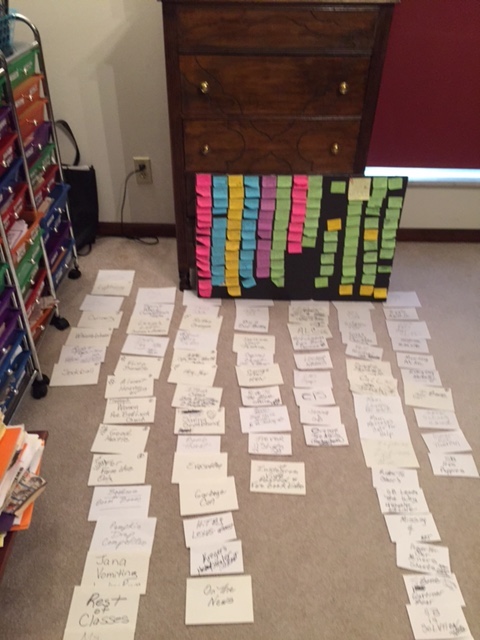
.
.
Sample Outlines:
Outline sample 1.pdf
Outline sample 2.pdf
Outline sample 3.pdf
Outline sample 4.pdf
Outline sample 5.pdf
Outline sample 6.pdfYou'll see many ways of getting a grip on what your story is. Sample #5, a nonfiction book by MSW, is the closest to a classical outline--I planned it largely ahead of time, outlined, then wrote, moving things around later. Sample #6 is a recent novel of mine that shows how I use my outlines, especially in later drafts, to keep information together: how many pages or words, whether or not I've had a chapter or passage critiqued.
In my practice, that latter use of the outline is most important.
However, one of the issues here is WHEN we outline. My example Sample #6 above is a late stage use of outline. Early stage, planning outlines include things like the Snowflake method the Hero's journey, etc.
Here is one of my favorite early-stage outlining techniques, the archipelago method:
.
.
The archipelago method
Chapters are largely arbitrary, arranged for ease of reading, more or less short story length. I believe that the true building block, the structuring element, of a novel, is the scene, just as it is in those other dramatic genres, film and theater. One of my favorite ways of thinking about a novel, then, is as an archipelago. An archipelago is by definition the tips of an underwater mountain chain that rise out of the sea as islands.
Imagine each island of the archipelago as a scene. We take a ship, or even better, a double hulled canoe like the ancient Polynesian settlers who settled the South Pacific used, and travel from one island to the next.
Our vessel in the water is the narration and the other materials that connect the scenes. They are essential, but the high points, the dramatic peaks, take place on the islands.
Thus, one way of drafting and structuring a novel is to write all those scenes, whichever ones capture your interest, however roughly, from beginning to end. Then go back and start your next draft from the beginning, filling in the gaps.
.
VII. Presenter Three
Philip Ai, Helen Dong, Mack Hood
VIII. WRITE
Put a novel (or other kind of story) in your novel. This can be an actual hard copy volume that someone uses as a murder weapon, or a character musing over some book they read. Helen did this with her character fantasizing as she listens to a storyteller tell a story.
IX. Assignments for 11-10-21
-- Writing Assignment due 11-10-21:
Some form of outline of your novel (substitutions are always welcome).
Alternative assignment: a passage in your book with a book in it.
Send questions for short marketing session to MSW!!
-- Reading Assignments due 11-10-21:
Draft Notes on Getting Published ; an excellent outline on the basics of getting published, look at Jane Friedman's page; Get to know MSW's Resources for Writers--a lot of odds 'n ends.
(Optional) If you haven't read it yet, "Strategy Six" from Ten Strategies to Write Your Novel.
Session 8. Wednesday 11-10-21
Marketing: What do you do with your novel
once you've finished writing it?
Presentation Schedule
Assignments for 11-10-21
-- Writing Assignment due 11-10-21:
Some form of outline of your novel (substitutions are always welcome).
Alternative assignment: a passage in your book with a book in it,
Send questions for short marketing session to MSW!!
-- Reading Assignments due 11-10-21:
Draft Notes on Getting Published ;
For an excellent outline on the basics of getting published, look at Jane Friedman's page;
Get to know MSW's Resources for Writers--a lot of odds 'n ends.
(Optional) If you haven't read it yet, "Strategy Six" from Ten Strategies to Write Your Novel.
I. Business for 10-27-21
-- How was outlining?
-- Comments on crowd scene writing--several of you did very well on that. However, here's one thing to work on: don't lose track of others in a scene with several people-- have them make a noise, or have the main character mention/notice, very briefly. Not like movies where a wide angle reminds us of where we are, who is there.
-- Join speeches and actions of one character in a single paragraph. See The Two Lindas.
-- General critique (perhaps because you're all in early drafts): the general statement followed by the specific example. In fiction, it should be the opposite--concrete example first or skip the generalization altogether.Not: "She felt nothing but rage. She felt as if her head were in a red cloud that obscured the corners of the room."
Better: "She felt as if her head were in a red cloud that obscured the corners of the room."
Which isn't to say you shouldn't ever just "tell." Maybe the best way to move forward is "She felt nothing but rage" with no imagery at all.
II. Presenter One
Charlotte Simons
IIII. Write
Someone in your novel is trying to sell something to another person. This can be an actual retail object, or life insurance, or a political candidate-- or something like one's self at an interview, or one's self as a sexual partner.
IV. Presenter Two
Kendall Pendlebury
V. Break
VI. Marketing and Publishing1. Intro:
Today is a time of great flux--lines weakened between commercial publishing and so-called indie publishing (sometimes self-publishing, sometimes subsidized or cooperative publishing). There are many models for publishing today, but making a living at it is very hard.
There is a great deal of competition for the entertainment dollar!
The ideal, which I came in at the very end of, is that you get a literary agent who takes on book, sells to editor, who sells to her publisher, who edits, prints, sells, etc.
This is still possible, especially for nonfiction and for very commercially viable fiction.
Now, however, even with commercial publisher, authors are usually asked for a "platform" and sometimes to do their own copy editing and publicity.
Note: even when I had a hotshot agent who placed my first novel with Scribner's, I placed my children's and literary short story book on my own. Agent just went over contracts and took her cut.
Since that first novel, I've published with
another major New York publisher
small presses that paid essentially nothing
university presses that don't do advances, but do pay royalties
a cooperative press where writers share work and pay their own expenses
There is also the separate world of e-book publishing, which is amazingly cheap, and especially with certain genres has become a common outlet.
2. As you approach publishing, do some research.
Draft Notes on Getting Published
For an excellent outline on the basics of getting published, look at Jane Friedman's page. You may also subscribe to her blog.
Best general resources on places to submit, lists of writing programs and conferences and much, much more: NewPages.com.
Also excellent site for general information (literary agents, for example,)is Duotrope.com.
MSW's Resources for Writers has a lot of odds 'n ends.
Especially for literary writing, see Poets & Writers.
Notes on various types of publishing at Publishing Types and Print on Demand.
How long should a novel be? See notes on my Resources for Writers page.
A one-pager, somewhat out-of-date, of resources about getting published
See blog post by Veronica Sicoe on why she self-publishes and
A Wall Street Journal article about Marlen Bodden, a former student in one of my novel classes who first self-published-- and then had her book picked up by a commercial press. Note: self-publishing should never be you first choice, but it should be on your list of possibilities.
Another good resource: An online magazine called AuthorsPublish at https://authorspublish.com/ . Here's their free guide to traditional-style publishers who don't require agents.
3. Do these things as you get closer to marketing your novel
First, get the manuscript in pristine condition--editors don't have patience for mess and mistakes. The competition's too great.
Experiment with submitting to online journals, magazines, & contests--short stories or novel-parts, or sections of your novel that can be edited to stand alone. This can be useful when you try to get an agent or editor, evidence that someone else appreciated your work. There are infinite possibilities on the Internet and also look at NewPages.com. Most online and other literary journals don't pay. They are, however, easy to submit, using something called "Submittable." Note also that many of them charge a reading fee of $3 and up.
On Facebook, search for "Calls for submissions (poetry, fiction, art.)" Sign up to get notices.
Peruse old standards like Writer's Market and The Writer and Writer's Digest and get on Jane Friedman's free newsletter list.
Read Jeff Herman's Guide to Agents.Lots of good stuff, oriented toward literary writing, at Poets & Writers.
Consider going to a writers' conference to make connections and learn more. Some people love these, but even if you don't, one conference should give you an overview and the vocabulary you need to proceed. And doing no writers' conferences is just fine too.
4. A Few Specific Questions:
From Tracy: "I would be interested to know how to find publications (paying if possible) where I can submit short stories to get my name out there."
From Christina:
--What are your tips for writing a query letter?
--How do you find an agent who works in your preferred genre (especially if you predict that you might experiment in different genres for future books)?
--How do you not get discouraged after several rejections?
--How do you find an agent?Check out Poets & Writers magazine and various other resources listed here. Go to a conference and meet agents. Read Jeff Herman's many-times-updated Guide to Agents.
How do you get an agent without street cred? It seems like you need to be published before pitching agents! Research, attend a conference, even a one-day one. Made a schedule and start submitting.
What should you say in your cover letter? Keep it to one page; don't be cute; list any publications, honors, awards, areas of special expertise. Query Letter Samples
When is a good time to start When you actually have a full novel manuscript ready to show.
Should I use a general editor before submitting? Better to edit you own if you can (more opportunity to make changes), but some people swear by editors.
How to develop proposals for publishers? More for non-fiction than novels.
How do you copyright your novel to prevent someone from stealing the ideas and content? A publisher will do this, or you can do it, but only after the manuscript is complete. You can' copyright ideas, and nobody wants to steal your novel.
What is the right number of agents to query at one time? They take so long, and not all of them even reply. Is there any reason not to send to a hundred in one gulp?
Would self-publishing be an option rather than go through all the rejections unknown writers are likely to receive?
If you do get published, what rights should you negotiate?
Some sources suggest no major publisher will look at manuscript that is not supported by an agent? Is that true?
In the notes about one agent, she wrote please, please not to send her stories about "white dudes on quests." That covers a lot of ground. I am all for diversity but still hope to be published. Any advice on how to negotiate this variable?
VII. Presenter Three
Marc Rapaport
VIII. Assignments for 11-17-21
-- Writing Assignment due 11-17-21:
Choose one:
(Revision-extenstion of today's in-class) Someone in your novel is trying to sell something to another person. This can be an actual retail object, or life insurance, or a political candidate-- or something like one's self at an interview, or one's self as a potential sexual partner.
A revision based on comments in this class. Include notes from MSW and class members for comparison.
-- Reading Assignments due 11-17-21:
MSW's Seven Layers to Revising Your Novel
A review of a book called The Death of the Artist by William Deresiewiczs.
This is about the future of artists, including novel writers.
Session 9. Wednesday 11-17-21
Revision I:
Presentation Schedule
Assignments due 11-27-21:
-- Writing:
Choose one:
(Revision-extenstion of today's in-class) Someone in your novel is trying to sell something to another person. This can be an actual retail object, or life insurance, or a political candidate-- or something like one's self at an interview, or one's self as a potential sexual partner.
A revision based on comments in this class. Include notes from MSW and class members for comparison.
-- Reading Assignments:
MSW's Seven Layers to Revising Your Novel
A review of a book called The Death of the Artist by William Deresiewiczs.
This is about the future of artists, including novel writers.
I. Business for 11-17-21
If you didn't see my email, Helen withdrew.
We have four presenters for 12-1-21: Philip Ai, Linda Atlas, Maddie Cella, and Christina Poulin. Their pieces are due in our inboxes by midnight Sunday, November 28.
Remember: homework and any pages you want me to respond to (including extra pages) must be in my inbox by midnight on the last day of class, Wednesday, December 1, 2021. If you have extra pages beyond homework and presentatiion pieces, it would be a great kindness to give them to me sooner.
Interesting Links from things mentioned last week:
Brandon Sanderson Youtube lectures on writing science fiction and fantasy
A couple of sample query letters by MSW
Duotrope.com
The dysfunctional writers group and the kidney donorJane Friedman on various types of publishing in 2022
Any final questions/thoughts/sharing on the Marketing discussion?
II. Presenter One
Tracy
IIII. Write
Many cultures consider politics to be banned from polite conversation. Others think politics is a terrific subject of conversation. Put a scene into your novel with some politics. This can be a dialogue--maybe a distraction from what your main character really wants to talk about, or a screen for what people are really feeling. Or, some political events can affect your action. Or It can be a background radio (or "personal feed" or "Stream"). Just have it be explicitly political, with issues and conflicts referred to fairly specifically.
A twist on this would be to do politics at the holiday table: Thanksgiving?
IV. A little on Revision in general
Micro revising (similar for all types of fiction, and actually, all prose narrative--personal essay, etc.)
How do you feel about revising? Dread it? Look forward?Revision is (IMHO) Adding, Cutting, Moving around. I
Revising novels is both about surveying the big picture and about focusing on the tiniest details: Above all, get rid of extra words:
-- Department of Tiny Details: some examples of tightening and cutting
-- Take a look at the sample below from a novella of mine.
First there was tightening-- what I think of as soft sentences getting more wiry, tougher. But I also madechanges during revision about what information is conveyed: information about the school, and the vice-principal. The original version has two women teachers talking, but doesn't go very far with the story or deep with the characters. The same information, given via the narrator and the vice-principal has more underlying tension, maybe more about the culture of the school.
I discovered this as I was writing a second (maybe third) draft. I get tremendous pleasure in seeing the story come into view like this, like an old fashioned developer bath for photos.
Another way I think of this is as sculpture: I get that elephant's general bulk hacked out, then the details that come into view.
B. Revision is also--once you've got a draft-- about looking for things like
-- Consistency in a character's appearance AND behavior. What have I revealed. Best technique: do a search for "Karen" and check all her details through the whole manuscript.
-- You can do this with action, too, or the appearances of certain places (do a add a new detail with each appearance).
-- Grounding
I want to call specific attention to a couple of things in my article Seven Layers to Revising Your Novel ( from The Writer Vol. 125, Issue 11).
V. Break
VI. Presenter Two
En-Szu
VII. Mental Exerise (Finish next week)
A short "contract" or an imagining of where you will be with your novel a year from now?
VIII. Assignments for 12-1-21:
Writing assignment:Many cultures say that polite conversation never includes politics (or religion). Others think politics is a terrific subject of conversation. Put a scene into your novel with some politics. This can be a dialogue--maybe a distraction from what your main character really wants to talk about, or a screen for what people are really feeling. It can be the radio (or "personal feed" or "Stream") in the background. It can be an action. Just have it be explicitly political, with issues and conflicts referred to fairly specifically.
A twist on this would be to do politics at the holiday table: Thanksgiving?
Or, as always, any pages on which you want feedback.
Reading Assignments:
Read this on Story, Plot, and Character: Dennis Lehane appreciates Elmore Leonard
How some contemporary writers revise (from Lit Hub).
MSW's article Seven Layers to Revising Your Novel ( from The Writer, Vol. 125, Issue 11).
Reading Assignment (optional): 1, Ten Strategies, "Strategy 10: Revise Your World;" 2. Another approach to planning and structuring: a short version of the Hero's Journey.
No Class
November 24, 2021
Session 10. Wednesday 12-1-21
Revision II: Final Session
A few novelists I've been reading lately. Who do you read most often?
Madeline Miller, Octavia Butler, Stendhal
Assignments Due 12-1-21:
Writing assignment:
Many cultures say that polite conversation never includes politics (or religion). Others think politics is a terrific subject of conversation. Put a scene into your novel with some politics. This can be a dialogue--maybe a distraction from what your main character really wants to talk about, or a screen for what people are really feeling. It can be the radio (or "personal feed" or "Stream") in the background. It can be an action. Just have it be explicitly political, with issues and conflicts referred to fairly specifically.
A twist on this would be to do politics at the holiday table: Thanksgiving?
Or, as always, any pages on which you want feedback. Homework and any pages you want me to respond to (including extra pages) must be in my in box by midnight Wednesday, December 1, 2021.
No exceptions, please.
Reading Assignments:
Read this on Story, Plot, and Character: Dennis Lehane appreciates Elmore Leonard
How some contemporary writers revise (from Lit Hub).
MSW's article Seven Layers to Revising Your Novel ( from The Writer, Vol. 125, Issue 11).
Reading Assignment (optional): 1, Ten Strategies, "Strategy 10: Revise Your World;" 2. Another approach to planning and structuring: a short version of the Hero's Journey.
I. Business for 12-1-21
Please do the NYU quantitative evaluation of the course
Remember: homework and any pages you want me to respond to (including extra pages) must be in my in box by midnight tonight, Wednesday, December 1, 2021. No exceptions, please.
II. Write: A brief, generally favorable review of your novel
5 minutes: include at least one thing the "reviewer" thinks could have been better.
III. Presenter One
Christina Poulin
IV. Presenter Two
Maddie Cella
V. More Revision Issues
-- Take a look at the sample below from a novella of mine: Tyler's New Clothes
First there was tightening-- what I think of as soft sentences getting more wiry, tougher. But I also madechanges during revision about what information is conveyed: information about the school, and the vice-principal. The original version has two women teachers talking, but doesn't go very far with the story or deep with the characters. The same information, given via the narrator and the vice-principal has more underlying tension, also a hint about the culture of the school.
I discovered this as I was writing a second (maybe third) draft. I get tremendous pleasure in seeing the story come into view like this, like an old fashioned developer bath for photos.
Another way I think of this is as sculpture: I get that elephant's general bulk hacked out, then the details that come into view.
-- A Best Revision Technique: Consistency in a character's appearance AND behavior. What have I revealed. Best technique: do a search for "Karen" and check all her details through the whole manuscript. You can do this with action, too, or the appearances of certain places (do a add a new detail with each appearance).
-- I want to call specific attention to a couple of things in my article Seven Layers to Revising Your Novel ( from The Writer Vol. 125, Issue 11).
VI. Break
VII. Presenter ThreeMaddie Cella
VIII. Discussion (Go Round)
What stands between you and getting your novel to where you imagine/would like to be in November 2022? Time constraints? Need for support? How do you plan to stay interested, stay the course?
IX. Presenter Four
Linda Atlas
X. Homework!
Try these when you can: https://www.meredithsuewillis.com/Quotidian%20Scenes%20and%20Things.pdf
Farewell and
Schedule of Presenters
Note: limit of four presenters per session.
2. 9-29-21
Sulome Anderson
Charles Roberts
3. 10-6-21
Marc Rapaport
Mack Hood
4. 10-13-21
Kristen Tauer
Christina Poulin
Charlie Roberts
5. 10-20-21
Maddie Cella
En-Szu Wright
Charlotte Simons
Kendall Pendlebury
6. 10-27-21
Tracy Costa
Linda Atlas
Kristen Tauer
7. 11-3-21
Philip Ai
Mack Hood
Helen Dong
8. 11-10-21
Charlotte Simons
Kendall Pendlebury
Marc Rapaport
9. 11-17-21
En-Szu Wright
Tracy Costa
No Class 11-24-21
10. 12-1-21
Christina Poulin
Philip Ai
Maddie Cella
Linda Atlas
Top Row: Octavia Butler (science-speculative fiction); Mario Puzo (The Godfather, of course, but also an excellent immigration novel called The Fortunate Pilgrim); James Baldwin; Michael Connelly (murder, police procedurals--Harry Bosch);Mrs. Humphry Ward (late Victorian, opposed voting for women but wrote about women characters with jobs and enormous agency) ; Lavie Tidhar (speculative fiction).
Below This Line:
Various NYU Policies and Information Posted Here Per NYU Requirement.
Novel Writing
Instructor: Meredith Sue Willis
Email: meredithsuewillis@gmail.com
Course : Novel Writing NYU WRIT1-CE9355
Meredith Sue Willis
Term: Fall 2021
Class Format: Synchronous via Zoom
Course URL: https://www.meredithsuewillis.com/NYU%20novelwriting%20fall%202021.html
Course Meeting Pattern: Wednesdays, 6:30-8:50 pm. No class November 11, 2020
General Course Information
Faculty Name/Title:
Faculty NYU email address: Meredithsuewillis@gmail.com
Response time and Communication: Email, usually within 24 hours.
Course Description
Receive the help you need to get started and to get structured, whether your goal is to write a novel or to mold a series of short stories into a longer work. In this course, delve into writing exercises that practice establishing tone, exploring character, tightening and deepening dialogue, and adding interior monologue. Topics covered include sustaining interest as a writer and a reader, understanding the value of an agent, and excerpting from a lengthy work for publication in magazines. This course is appropriate for anyone who has done some writing or who has taken an introductory writing course.
Course Prerequisites
Command of written English and a desire to write fiction; an an interest in reading and writing novels.
Course Structure and Methods
Novel Writing is organized in ten sessions that will include live discussions by zoom; readings to be done outside of class; readings during class using web links and shared screen; short in-class writings; very short mini-lectures; critiquing of student writing.
There will be weekly assigments, all from the student’s novel-in-progress. Students aleady engaged in a novel may substitute selections of their novel for the assignments.
For a detailed look at some sample pages of a past Novel Writing class, look at https://www.meredithsuewillis.com/nyunovelwriting%20spring%202020.html .
For more about the instructor, check out her web page at https://www.meredithsuewillis.com.
Brightspace is the only learning management system you can use. Zoom is the remote instruction platform used at NYU.
Course Learning Outcomes
- Advance your novel by 30 - 50 pages.
- Write an outline or other plan for your novel
- Learn the basic vocabulary and issues for thinking about novels
- Improve your ability to critique and revise your own work and how to support the work of others.
Communication Policy
I prefer to communicate by email, and generally will respond within 24 hours, except on weekends and holidays. If I plan to be away from my computer for more than a couple of days, I will let you know in advance. Should you encounter any issues with the course, please contact me as soon as possible. Use my regular email, meredithsuewillis@gmail.com.
For announcements, I will send direct emails, but also please check the class web page at https://www.meredithsuewillis.com/nyunovelwriting%20fall%202020.html frequently for minor changes, additional optional readings and other changes. Major changes (cancelled class etc.) will be announced by email and on the “Announcements” module on Brightspace if I remember.
Course Expectations
Students are expected to look at the class webpage at least weekly for changes, updates, and links to readings. These will be found at https://www.meredithsuewillis.com/nyunovelwriting%20fall%202020.html .
Homework assignments should be double-spaced with one inch margins on all sides and a font similar to Times New Roman 12 point, @ 2 pages long (up to 600 words). The homework assignments are for the professor only. She will respond holistically.
You will also be expected to present your work to the whole class two times. These will be longer chunks of your novel. The total number of pages the teacher will look at will be 50, including both longer chunks and homeworks.
Students are also expected to read and be prepared to comment on other students’ presentation pieces.
Students are expected to attend all class sessions. Attendance will be taken in to consideration when assigning final grades. Unexcused absences may have a negative impact on your grade. Students who have been excessively absent may be considered to have withdrawn unofficially and may be graded accordingly.
Students who join the course after it begins are responsible for ensuring that they identify what assignments and preparatory work they have missed and complete and submit those per the syllabus.
Students who miss class for medical reasons are required to notify their instructor of their absence.
Students who plan to miss classes for religious reasons are expected to inform instructors beforehand and to be responsible for assignments given during their absence. For university policies on religious holidays please check: https://www.nyu.edu/about/policies-guidelines-compliance/policies-and-guidelines/universitycalendar-policy-on-religious-holidays.html
Students may enter the Zoom meeting room late or leave class early only if given permission by the instructor.
Class Conduct
Here are some of NYU’s suggestions for courtesy and professionalism in virtual classes. Some of these are pretty funny, bringing up thoughts about wearing pajamas to class. I always wonder if pajama bottoms with a button down shirt are okay. This is just food for thought….
- When you are typing or submitting a chat response, do not use all capital letters (caps). Caps is equal to SHOUTING YOUR MESSAGE.
- Although it is customary to use acronyms (ex. ROFL - rolling on the floor laughing, BTW - by the way, or FYI - for your information) when chatting online, try to avoid using these. There may be those in this course who are not as experienced as you and may miss out on understanding.
Your instructor was recently embarrassed in a Zoom meeting about children and racism when she didn't understand “BIPOC.” She thought it was about gender whereas it is Black Indigenous People of Color. Novels, stories, personal narratives, poetry and much more work best when they don't make assumptions and are very concrete.
Class Participation:
You’ll get more out of it if you participate. Critiquing, in particular, needs everyone to read the other students’ work and be prepared to talk about it. The more you give, the more you'll get.
Participation means contributing to the discussion versus simply speaking in class or offering a random comment in the discussion forums; it also means actively listening and building on the questions and discussion points of your classmates. As NYU students, you are expected to conduct yourselves in a professional manner and engage and collaborate with your classmates.
Dress Code & Technology Policy
- Dress as if you are in the Classroom.
- Keep your microphone muted unless asking a question or engaging in discussion.
- Check your video and audio when entering your class session.
- Think background, minimize distractions around you.
- Look into the camera instead of looking at the screen.
- Type quietly, mute if necessary.
- Don’t eat during a Zoom class session.
- Focus on Class.
SPS classes are diverse and include students who range in age, culture, learning styles, and levels of professional experience. To maintain an inclusive environment that ensures all students can equally participate with and learn from each other, as well as receive feedback and instruction from faculty during group discussions in the classroom, all course-based discussions and group projects should occur in a language that is shared among all participants.
All synchronous class sessions require use of Zoom.
TEXTBOOK and COURSE MATERIALS
Optional Text
Ten Strategies to Write Your Novel
Meredith Sue Willis, Montemayor Press (www.montemayorpress.com) 2010, ISBN 9781932727104 There will be other readings online with links from the class web page.
ASSESSMENT STRATEGY
This is essentially a non-graded class. You may choose to take this course pass/fail by applying to the office of CALA.
The truth is, grading creative writing is a ridiculous proposition, and the grading in this class is actually not going to be on your writing, but on your use of the class. If you really want or need a grade, it goes like this: If you do all the homeworks, attend all the class sessions, show evidence of having read all assignments, presented your work for critique at least two times, and are an active, supportive member of the group, you’ll get an A. Not doing any of those things takes you down to a B or lower.
Time Commitment
Classes run 2 hours and 20 minutes with a break. Your outside reading shouldn’t take more than half an hour, probably less. What may take a little more time is responding to the work of other students for critiquing sessions. The focus here is on you getting underway or restarted on a novel, so writing is where most of your time should be spent. The more you write, the more you get out of the class. It’s all up to you.
Assignments and Deadlines
The short weekly assignments and the papers for critique are due by the end of business on Friday .
NYUSPS POLICIES
Center for Student Accessibility
New York University is committed to providing equal educational opportunity and participation for students with accessibility needs. Students who are interested in applying for academic accommodations are advised to reach out to the Moses Center for Student Accessibility (CSA) as early as possible in the semester.
If you already receive accommodations through CSA, you are encouraged to request your accommodation letters through the Moses portal as soon as possible.
The Moses Center for Student Accessibility (CSA)
Telephone: 212-998-4980
Website: www.nyu.edu/students/communities-and-groups/student-accessibility
Email: mosescsa@nyu.edu
Academic Integrity and Plagiarism Policy
All students are expected to be honest and ethical in all academic work. This trust is shared among all members of the University community and is a core principle of American higher education. Any breaches of this trust will be taken seriously. A hallmark of the educated student and good scholarship is the ability to acknowledge information derived from others. Students are expected to be scrupulous in crediting those sources that have contributed to the development of their ideas.
Plagiarism involves borrowing or using information from other sources without proper and full credit. Students are expected to demonstrate how what they have learned incorporates an understanding of the research and expertise of scholars and other appropriate experts; and thus recognizing others' published work or teachings—whether that of authors, lecturers, or one's peers—is a required practice in all academic projects. Students are subject to disciplinary actions for the following offenses which include but are not limited to:
- Cheating
- Plagiarism
- Forgery or unauthorized use of documents
- False form of identification
Read more about Academic Integrity Policies at the NYU School of Professional Studies.
TurnItIn:
TurnItIn is a plagiarism detection software used to verify academic originality. All required assignments in this course may be checked for plagiarism using TurnItIn.
SCHOOL GRADING POLICIES
Grading for CE courses is by letter grade: A, A-, B+, B, B-, C+, C, C-, D+, D, and F. For NYUSPS’s complete grading policies, including criteria for incomplete (I), non-evaluative (NE), and P/F grades, or withdrawing from a course, see the Policies and Procedures.
Letter
%
GPA
Meaning
A
93-100
4.00 0
Excellent: Earned by work whose excellent quality indicates a full mastery of the subject and is of extraordinary distinction.
A-
90-92
3.66 7
Excellent: Earned by work whose excellent quality indicates a full mastery of the subject.
B+
87-89
3.33 3
Good: Earned by work that indicates a very good comprehension of the course material, very good command of the skills needed to work with the course material, and indicates the student’s full engagement with the course requirements and activities.
B
83-86
3.00 0
Good: Earned by work that indicates a good comprehension of the course material, good command of the skills needed to work with the course material, and indicates the student’s full engagement with the course requirements and activities.
B-
80-82
2.66 7
Good: Earned by work that indicates comprehension of the course material, command of
the skills needed to work with the course material, and indicates the student’s engagement with the course requirements and activities.
C+
77-79
2.33 3
Satisfactory: Earned by work that indicates an adequate and satisfactory comprehension of the course material and the skills needed to work with the course material, and indicates the student has met the requirements for completing assigned work and participating in class activities.
C
73-76
2.00 0
Satisfactory: Earned by work that indicates a satisfactory comprehension of the course material and the skills needed to work with the course material, and indicates the student has met the basic requirements for completing assigned work and participating in class activities.
C-
70-72
1.66 7
Satisfactory: Earned by work that indicates a minimally satisfactory comprehension of the course material and the skills needed to work with the course material, and indicates the student has met the minimum requirements for completing assigned work and participating in class activities.
D+
65-69
1.33 3
Passing: Earned by work that is unsatisfactory, but that indicates some minimal command of the course materials and some minimal participation in class activities that is worthy of course credit toward the degree.
D
60-64
1.00 0
Minimum passing grade: Earned by work that is unsatisfactory, but that indicates some minimal command of the course materials and some minimal participation in class activities that is worthy of credit toward the degree.
F
Below 60
Failing: Demonstrates minimal to no understanding of all key learning outcomes and core concepts; work is unworthy of course credit towards the degree.
COURSE OUTLINE/Sylllabus
This course outline may change. See latest at the Class Web site at https://www.meredithsuewillis.com/NYU%20novelwriting%20fall%202021.html . There will be links to reading materials and lots of other materials as well as the lates updates.
Session 1. 9-22-21
Topic: Introduction; Process and Product; Focus on Sense Details
Assignment Due: For the first session, please bring 14 copies of a one page summary or outline of the novel ( if you are just beginning, do this as a hypothesis) plus the first page to give everyone in the class a taste of your prose style. This is a total of two pages (two-sided is fine) with enough copies for the whole class.
Reading Assignment (optional): In Ten Strategies to Write Your Novel, read "Strategy 1: Separate Process and Product."
In Class Discussion:
Structure of the course and structure of the novel.
Session 2. 9-29-21
Topic: Developing Character Through Physical Description & Physical Action
Writing Assignment due: The first time a character visits a place in your novel– describe the place using all five senses if possible. There may be a lot of emotional content or not.
Reading Assignment (optional): Ten Strategies: Strategy 3: Explore Character from the Inside Out" in Ten Strategies (optional). Also, do short readings linked online.
Session 3. 10-6-21
Topic: Dialogue and Scene
Writing assignment due: A dialogue with a conflict in it.
Reading Assignment due: The building block of novels. Ten Strategies, "Strategy 5: Master
Session 4. 10-13-21
Topic: More Dialogue; More on Characters and Minor Characters
Writing Assignmente due: A scene focused on a minor character
Reading Assignment: Read the linked material on dialogue.
Session 5. 10-20-21
Topic: More on Developing Character—First thoughts on structure.
Write: A scene at the climax of your novel
Read: Linked “Notes on minor characters.”
Session 6. 10-27-31
Topic: Film Techniques for Novelists & Things Novels Do Better than Movies
Write: A scene that uses a technique common to both narrative and film (establishing shot, lighting, jump cut, etc.).
Read: (Optional) Ten Strategies, "Strategy 7: Use Film Techniques."
Session 7: 11-3-21
Topic: Structure and the Novel I: When, How, & If to Outline
Writing Assignment: Prepare an outline of your novel.
Reading Assignment (optional): In Ten Strategies, read "Strategy 6: Structure Your Novel."
Session 8. 11-10-21
Topic: Marketing and Structure II: How Is Your Novel Shaping Up? What Will You Do with It once you've finished writing it?
Write: Write a scene that uses a technique that is especially successful in fiction (interior monologue,memory, word play, flashback, summary, playing with time, etc.)
Read: See links online.
Session 9. 11-17-21
Topic: Revision Techniques Especially Useful for Novels
Write: A revision based on comments in this class. Include notes from MSW and class members for comparison.
Read: Seven Layers to Revising Your Novel ( from The Writer (November/December 2012, Vol. 125, Issue 11). See http://www.meredithsuewillis.com/Seven Layers To Revising Your Novel.pdf .
No Class 11-24-21
Session 10. 12-1-21
Topic: More revision, Farewells.
Write: Any pages you want response to.
Read: Links online.
Subscribe to Meredith Sue Willis's Free Newsletter
for Readers and Writers:
Please fill in your e-mail address
to receive Books For Readers NewsletterE-mail address: Subscribe Unsubscribe
Send mail
• What's On This Site • Information about MSW • Resources for Writers • Tips for Writers
• Samples of MSW's Writing • Articles for Writers • For Teens • News About MSW • For Kids
• For Teachers • Home • MSW's Books • Newsletter • Free Writing Exercises • Online Writing Classes
Home

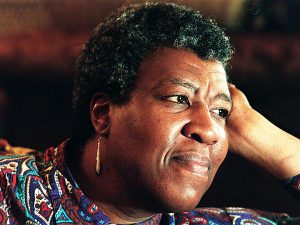

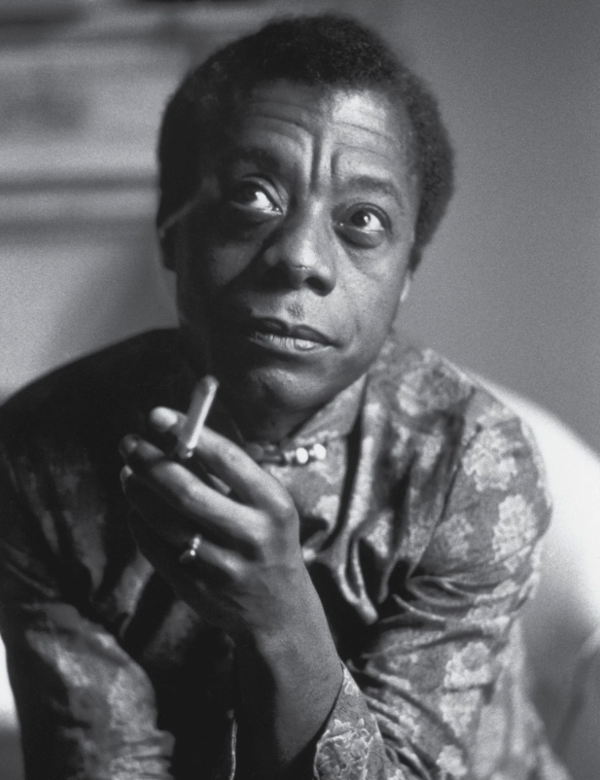

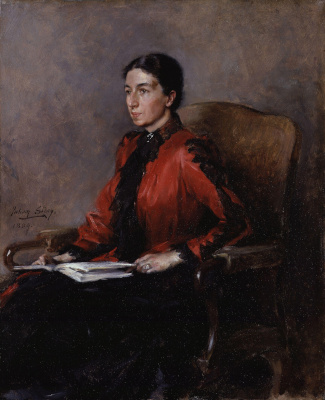



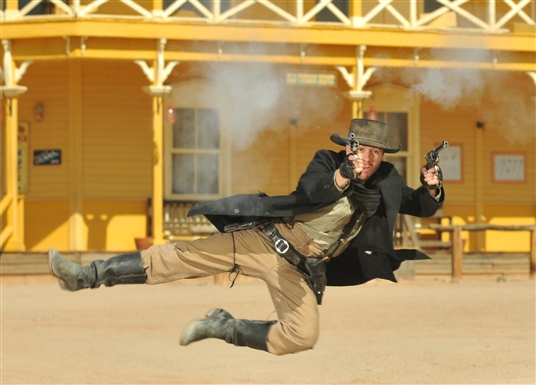


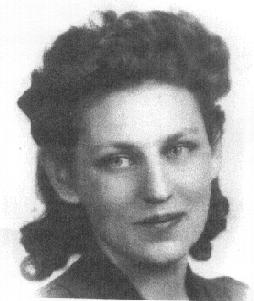


.jpg)
